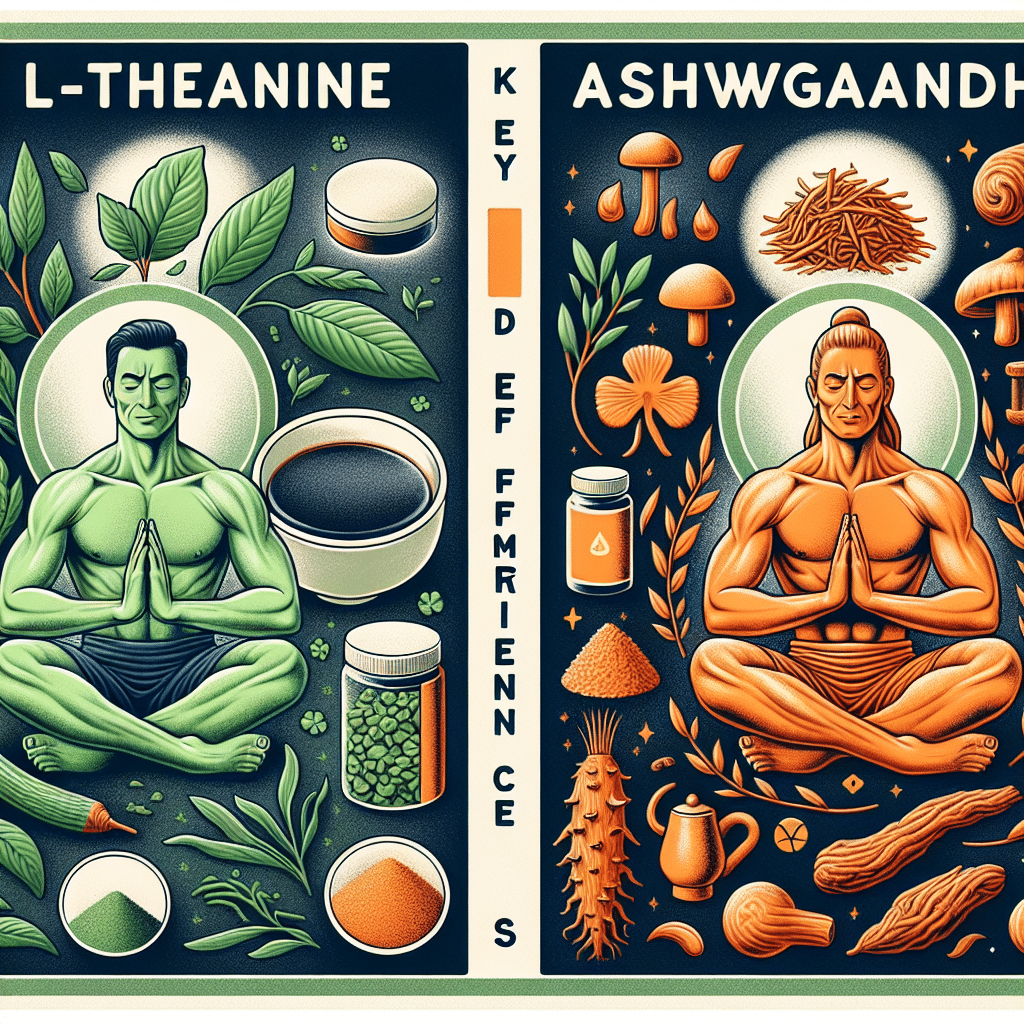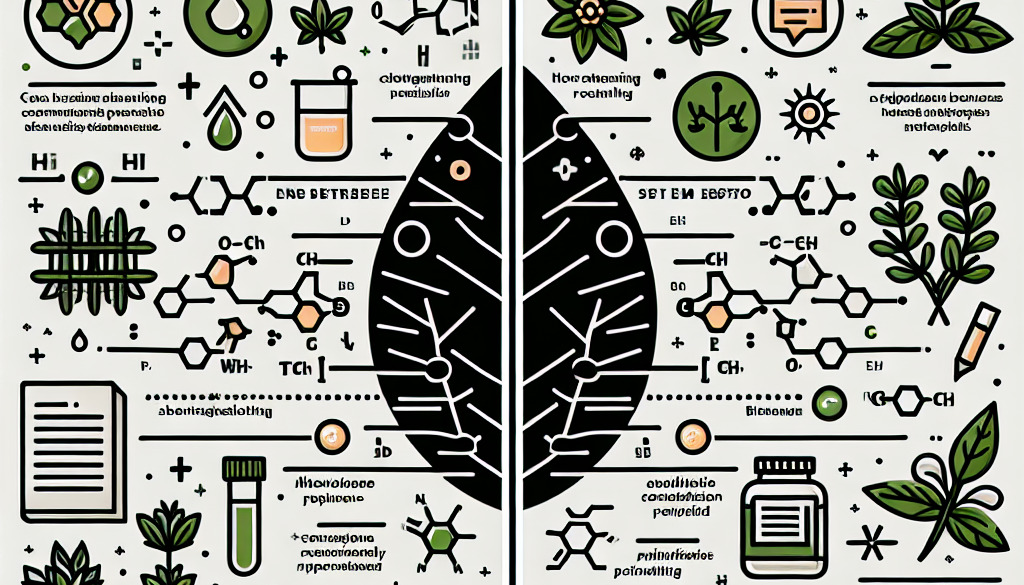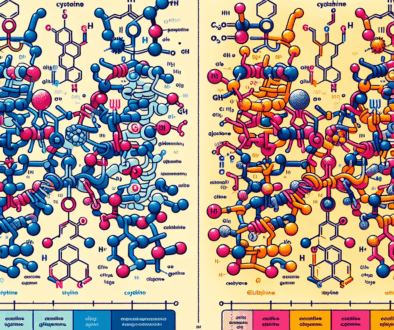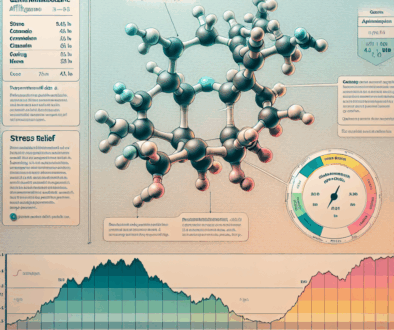L-Theanine vs Ashwagandha: Key Differences
-
Table of Contents
- L-Theanine vs Ashwagandha: Exploring Their Unique Benefits
- Understanding L-Theanine: The Relaxing Amino Acid
- Ashwagandha: The Ancient Adaptogen
- Comparing L-Theanine and Ashwagandha
- Key Differences in Effects and Usage
- Scientific Research and Evidence
- Choosing Between L-Theanine and Ashwagandha
- Conclusion: L-Theanine and Ashwagandha Offer Unique Benefits
- Enhance Your Wellness Routine with ETprotein’s Protein Products
L-Theanine vs Ashwagandha: Exploring Their Unique Benefits

When it comes to natural supplements for stress relief and cognitive enhancement, L-Theanine and Ashwagandha are two names that often come up. Both have been used for centuries in different cultural medicinal practices and have gained popularity in the modern wellness industry. However, despite their shared uses for stress and anxiety, they have distinct properties, mechanisms of action, and benefits. This article will delve into the key differences between L-Theanine and Ashwagandha, providing insights into how they work and which might be best suited for your needs.
Understanding L-Theanine: The Relaxing Amino Acid
L-Theanine is an amino acid commonly found in tea leaves, particularly in green tea. It is well-known for its ability to promote relaxation without causing drowsiness, making it a popular choice for those looking to manage stress and improve focus.
- Origin and Sources: L-Theanine is derived from Camellia sinensis, the plant from which all traditional teas are made. It can also be found in certain types of mushrooms.
- Mechanism of Action: L-Theanine works by modulating aspects of brain function. It increases the levels of GABA, a neurotransmitter that has calming effects on the nervous system. Additionally, it enhances alpha brain wave activity, which is associated with a state of relaxed alertness.
- Benefits: Research suggests that L-Theanine can help reduce stress, improve sleep quality, enhance cognitive performance, and boost mood.
- Side Effects: L-Theanine is generally considered safe and has few reported side effects when taken in moderate amounts.
Ashwagandha: The Ancient Adaptogen
Ashwagandha, also known as Withania somnifera, is an herb that has been used for over 3,000 years in Ayurvedic medicine. It is classified as an adaptogen, meaning it helps the body manage stress.
- Origin and Sources: Ashwagandha is a small shrub with yellow flowers, native to India and North Africa. Extracts or powder from the plant’s root or leaves are used to treat a variety of conditions.
- Mechanism of Action: Ashwagandha is believed to affect the hypothalamic-pituitary-adrenal (HPA) axis, which regulates stress responses. It may also mimic GABA activity, contributing to its calming effects.
- Benefits: Ashwagandha is traditionally used to relieve stress, increase energy levels, improve concentration, and reduce inflammation.
- Side Effects: While Ashwagandha is generally safe, it can interact with certain medications and is not recommended for pregnant or breastfeeding women.
Comparing L-Theanine and Ashwagandha
While both L-Theanine and Ashwagandha offer stress-relief benefits, their differences lie in their origins, active compounds, and the breadth of their effects on the body.
Key Differences in Effects and Usage
- Stress and Anxiety: Both supplements are known to reduce stress and anxiety, but L-Theanine often works more quickly, making it suitable for acute stress relief. Ashwagandha may take longer to show effects but can support the body’s resilience to stress over time.
- Cognitive Function: L-Theanine is particularly noted for its ability to enhance cognitive function and is often used to improve focus and attention. Ashwagandha also supports brain health but is more commonly used for its ability to improve memory and cognitive decline associated with aging.
- Energy and Stamina: Ashwagandha is often used to increase physical endurance and energy levels, which is not a primary effect of L-Theanine.
- Sleep Quality: Both can improve sleep, but they do so differently. L-Theanine promotes relaxation that can lead to better sleep, while Ashwagandha may directly improve sleep quality by addressing underlying stress.
Scientific Research and Evidence
Studies have shown that L-Theanine can significantly increase alpha brain wave activity, leading to a state of calm alertness. On the other hand, clinical trials on Ashwagandha have demonstrated its efficacy in reducing cortisol levels, a hormone associated with stress.
Choosing Between L-Theanine and Ashwagandha
When deciding between L-Theanine and Ashwagandha, consider your specific health goals and any current medications or health conditions. It’s also important to consult with a healthcare provider before starting any new supplement regimen.
Conclusion: L-Theanine and Ashwagandha Offer Unique Benefits
In conclusion, L-Theanine and Ashwagandha are both valuable supplements for stress relief and cognitive enhancement, but they offer different benefits and work through different mechanisms. L-Theanine is ideal for those seeking immediate relaxation and improved focus, while Ashwagandha is better suited for long-term stress management and overall vitality.
Enhance Your Wellness Routine with ETprotein’s Protein Products
If you’re looking to complement the benefits of L-Theanine and Ashwagandha with high-quality protein, consider ETprotein’s range of organic bulk vegan proteins. Their products, including Organic rice protein, pea protein, and various seed proteins, are non-GMO, allergen-free, and feature a neutral taste. ETprotein also offers L-(+)-Ergothioneine (EGT) in various grades, suitable for a range of industries. Enhance your wellness routine with ETprotein’s premium protein products.
About ETprotein:
ETprotein, a reputable protein and L-(+)-Ergothioneine (EGT) Chinese factory manufacturer and supplier, is renowned for producing, stocking, exporting, and delivering the highest quality organic bulk vegan proteins and L-(+)-Ergothioneine. They include Organic rice protein, clear rice protein, pea protein, clear pea protein, watermelon seed protein, pumpkin seed protein, sunflower seed protein, mung bean protein, peanut protein, and L-(+)-Ergothioneine EGT Pharmaceutical grade, L-(+)-Ergothioneine EGT food grade, L-(+)-Ergothioneine EGT cosmetic grade, L-(+)-Ergothioneine EGT reference grade and L-(+)-Ergothioneine EGT standard. Their offerings, characterized by a neutral taste, non-GMO, allergen-free attributes, with L-(+)-Ergothioneine purity over 98%, 99%, cater to a diverse range of industries. They serve nutraceutical, pharmaceutical, cosmeceutical, veterinary, as well as food and beverage finished product distributors, traders, and manufacturers across Europe, USA, Canada, Australia, Thailand, Japan, Korea, Brazil, and Chile, among others.
ETprotein specialization includes exporting and delivering tailor-made protein powder and finished nutritional supplements. Their extensive product range covers sectors like Food and Beverage, Sports Nutrition, Weight Management, Dietary Supplements, Health and Wellness Products, and Infant Formula, ensuring comprehensive solutions to meet all your protein needs.
As a trusted company by leading global food and beverage brands and Fortune 500 companies, ETprotein reinforces China’s reputation in the global arena. For more information or to sample their products, please contact them and email sales(at)ETprotein.com today.












